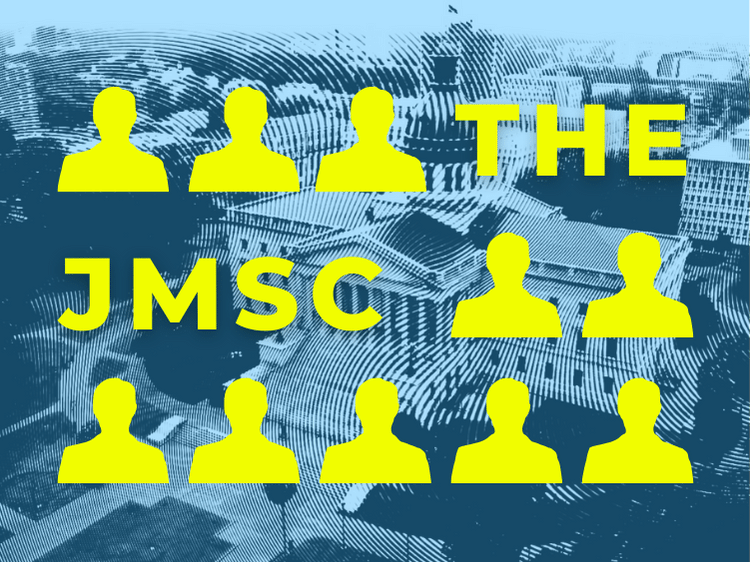A subcommittee of the South Carolina Senate Judiciary Committee is set to discuss a variety of bills related to judicial reform in South Carolina on February 6.
This hearing comes after an ad hoc committee of state senators and representatives tasked with evaluating the judicial selection process met several times beginning in November 2023 to hear from lawyers, judges, officers, and members of the public to get input on where improvements could be made in the process.
Right now, judges in South Carolina are vetted by a Judicial Merit Selection Committee and then their appointments are voted on by the general assembly. The problem? The general assembly has a significant number of lawyer legislators, meaning that judicial candidates have to rely on the same attorneys who practice in their courts to elect them to the bench every six years.
The following is a list of the bills with links to their summaries and sponsors and our main takeaways. The most common suggestion is to ensure that all qualified judicial candidates for a seat on the bench are presented as an option to the general assembly. Right now, only three candidates for each seat are submitted for potential election no matter how many candidates qualify to hold a judicial seat.
Senate Bill 99
Introduced by: Senators Campsen and Kimbrell
Initially filed: 11/30/22
Suggested Changes:
- Judicial candidates may not seek pledges from the General Assembly until 12 days after the initial release of the report concerning nominees
- There must be at least 22 days between the release of the JMSC’s report concerning nominees and the General Assembly’s vote on appointments.
Senate Bill 130
Introduced by: Senators Hembree and Kimbrell
Initially filed: 11/30/22
Suggested Changes:
- Investigation of judicial candidates should include the South Carolina Bar Assessment of the candidate, the citizens committee assessment of the candidate, and public testimony from any witnesses appearing before the commission.
- All qualified candidates for a judicial seat should be presented to the General Assembly instead of just three
- Each candidate should have a majority vote from each house of the general assembly
Senate Bill 171
Introduced by: Senators Climer, Gustafson and Kimbrell
Initially filed: 11/30/22
Suggested Changes:
- The prohibition against dual office holding (being a member of the general assembly and a judge) to extend the prohibition to the immediate family member of a member of the general assembly.
- Note: The law this seeks to amend is SC Code 2-19-70. It is not yet clear which subsection of the bill this prohibition is speaking to specifically.
Senate Bill 178
Introduced by: Senators Climer and Kimbrell
Initially filed: 11/30/22
Suggested Changes:
- The JMSC should have 7 members consisting of the governor and six members of the public at large
- All qualified candidates for a judicial seat should be presented to the General Assembly instead of just three
- Lawyer-legislators may not represent clients for a fee if the lawyer-legislator voted in judicial elections or the confirmation of masters-in-equity during the preceding 12 months.
Senate Bill 248
Introduced by: Senators M. Johnson and Kimbrell
Initially filed: 11/30/22
Suggested Changes:
- The JMSC should have 7 members appointed from the general public by the speaker of the state house of representatives; two of the members must NOT be licensed to practice law
- An incumbent judge should notify the state supreme court of interest in remaining on the bench rather than seek reelection
- Documents submitted at the JMSC hearings should be made publicly available in electronic format and also provided to the governor
Senate Bill 249
Introduced by: Senators M. Johnson and Kimbrell
Initially filed: 11/30/22
Suggested Changes
- Amend the state constitution to establish a procedure in which the governor appoints the judges and justices rather than the general assembly electing judges and justices
Senate Bill 444
Introduced by: Senators Massey, Climer, Rice, Loftis, Gustafson, Davis, Cash, Corbin, Kimbrell, Verdin, Peeler, Shealy, Bennett, Reichenbach, Garrett, Gambrell, Grooms, Hembree, M. Johnson and Young
Initially filed: 1/25/23
Suggested Changes:
- All qualified candidates for a judicial seat should be presented to the General Assembly instead of just three
Senate Bill 450
Introduced by: Senators Corbin, Garrett, Kimbrell, Climer, Peeler, Shealy, M. Johnson, Cash, Rice, Loftis, Bennett, Davis, Grooms, Gambrell, Cromer and Verdin
Initially filed: 1/25/23
Suggested Changes:
- The JMSC should consist of two members from each congressional district and one member must be appointed by the governor to serve as chairperson
- JMSC members should only serve for two terms
- Members of the general assembly may not serve on the JMSC
- The JMSC should elect officers for the commission
- Members of the general assembly should be out of office for five years before serving on the JMSC
- Current and former judges should not serve on the JMSC
- All qualified candidates for a judicial seat should be presented to the General Assembly instead of just three
Senate Bill 476
Introduced by: Senators Corbin, Loftis, Kimbrell, M. Johnson, Turner and Bennett
Initially filed: 2/1/23
Suggested Changes:
- Amend the state constitution to allow supreme court justices, court of appeals judges, and circuit court judges should be appointed by the governor with advice and consent of the senate
Senate Bill 477
Introduced by: Senators Corbin, Loftis and Kimbrell
Initially filed: 2/1/23
Suggested Changes:
- Retired judges and justices may not continue to serve as judges following retirement
Senate Bill 482
Introduced by: Senators Peeler, Reichenbach, Verdin, Turner, Bennett and Rice
Initially filed: 2/2/23
Suggested Changes – Note: This bill deals specifically with the selection of magistrates
- Magistrate candidates must receive a majority vote of the members of the house and members of the senate
Senate Bill 693
Introduced by: Senators Campsen, Climer, Corbin, Kimbrell, Rice, Bennett, Grooms, Fanning and Verdin
Initially filed: 3/29/23
Suggested Changes:
- The JMSC should only consider the qualifications of a person recommended by the governor to hold judicial office
- Judicial applications should be forwarded to the governor
- The number of candidates submitted to the general assembly should be revised
Senate Bill 871
Introduced by: Senator McLeod
Initially filed: 11/30/23
Suggested Changes:
- Members of the general assembly who are practicing attorneys (lawyer-legislators) should recuse themselves from voting in all judicial elections.
Senate Bill 872
Introduced by: Senator McLeod
Initially filed: 11/30/23
Suggested Changes:
- All qualified candidates for a judicial seat should be presented to the General Assembly instead of just three
Senate Bill 873
Introduced by: Senator McLeod
Initially filed: 11/30/23
Suggested Changes
- The state constitution should be amended to require that anyone who serves as a chief justice or associate justice of the supreme court or as a court of appeals judge must have previously served as a judge of a court of record in South Carolina
Senate Bill 879
Introduced by: Senators Harpootlian, McLeod and Climer
Initially filed: 11/30/23
Suggested Changes
- Two members of the JMSC should be appointed upon recommendation of the South Carolina Bar Association
- A candidate should be prohibited from withdrawing his or her candidacy after the JMSC begins its investigation
- The JMSC should not consider any information from anonymous sources when considering the fitness of judicial candidates
- Immediate family members of the General Assembly members should not be elected to a judicial seat
- All qualified candidates for a judicial seat should be presented to the General Assembly instead of just three
Please sign into your Premium account then refresh this page to view this content.

Contact Beth Braden
Beth Braden
Beth Braden is an award-winning journalist with experience covering government, education and crime and courts for more than 10 years. In addition to following breaking news and writing feature stories about life in her home state of Tennessee, her by-line appears on several internationally known websites.
Beth is passionate about communicating complex information in an easy-to-understand manner and she loves to pore over public records and court documents as she seeks out patterns and context to share with her audience. In her spare time, she enjoys quilting, strange museums, and good cups of coffee.
Hi Marcy!! Open to all – no registration required… lines might form, but that’s a great opportunity to meet like-minded…
Is the sandbar event first come/first served? Or is there a way to reserve a place? that’s a small venue…


Leave a Reply